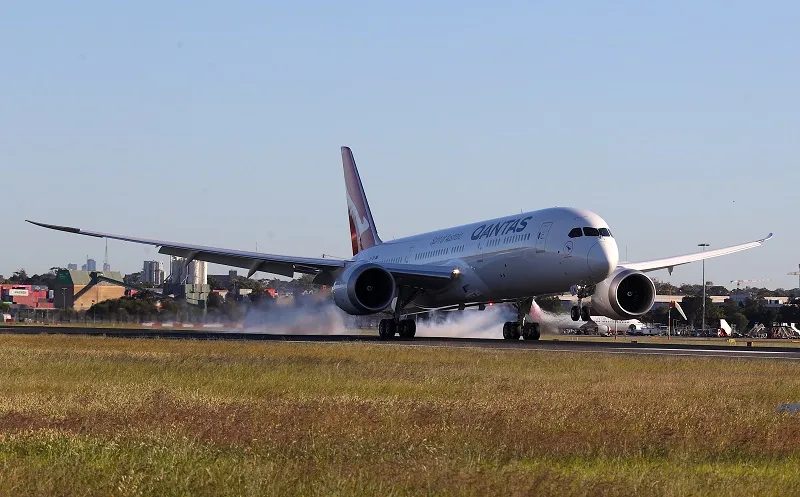
Qantas pilots warn fatigue system may be illegal
Jan 23, 2020

Qantas pilots have raised concerns about the airline's fatigue management system, suggesting it may violate legal safety standards. They argue that the current system does not adequately address the risks associated with pilot fatigue, potentially compromising flight safety. The pilots emphasize the importance of strict adherence to regulations that ensure adequate rest periods and alertness for crew members. Their warnings highlight the need for a thorough review of the fatigue management practices in place, as well as a commitment to prioritizing the well-being of pilots to maintain the highest safety standards for passengers.
As the aviation industry continues to grapple with the critical issue of pilot fatigue, recent warnings from Qantas pilots regarding the legality of their fatigue management system have sparked significant debate. Understanding the implications of this situation is essential for both industry stakeholders and passengers alike.
Understanding Pilot Fatigue
Pilot fatigue is recognized as a major safety concern in aviation. It can lead to decreased performance, slower reaction times, and impaired judgment. The International Civil Aviation Organization (ICAO) emphasizes the importance of effective fatigue management systems to ensure that pilots are fit for duty. However, the recent concerns raised by Qantas pilots illuminate potential flaws in existing systems.
Qantas Fatigue Management System
Qantas has implemented a fatigue management system designed to monitor and mitigate pilot fatigue. This system includes a range of measures, such as:
| Measures | Description |
|---|---|
| Scheduling Practices | Optimizing flight schedules to minimize long duty periods. |
| Rest Periods | Ensuring adequate rest time between flights. |
| Monitoring Tools | Using technology to track pilot fatigue levels. |
While these measures are in place, pilots have raised concerns that the system may not comply with legal standards. The implications of this could be far-reaching, affecting not only pilot health and safety but also passenger safety.
Legal Concerns Raised by Pilots
Qantas pilots have voiced their apprehensions regarding the legality of the fatigue management system, arguing that it may not align with current aviation regulations. Key points of contention include:
- Inadequate Rest Periods: Pilots argue that the mandated rest periods may not provide sufficient recovery time.
- Scheduling Conflicts: The scheduling practices may lead to back-to-back flights that contribute to fatigue.
- Monitoring Limitations: Existing monitoring tools may not accurately reflect pilot fatigue levels.
These concerns have prompted calls for a comprehensive review of the fatigue management system to ensure compliance with legal standards and best practices in aviation safety.
Impact on Safety and Operations
The potential illegality of Qantas' fatigue management system raises serious questions about the safety of operations. Fatigue can severely impair a pilot's performance, leading to increased risks of accidents. A study by the Federal Aviation Administration (FAA) indicated that fatigue-related incidents are a growing concern within the industry.
Moreover, if the fatigue management system is found to be illegal, Qantas may face legal repercussions, including fines and increased scrutiny from regulatory bodies. This could impact the airline’s reputation and operational efficiency, as well as the overall safety of its flights.
Industry Response
The aviation industry is closely monitoring the situation. Regulatory bodies, such as the Civil Aviation Safety Authority (CASA) in Australia, may be required to step in to assess the legality of Qantas' fatigue management system. Furthermore, other airlines might also re-evaluate their own systems to ensure compliance and safety.
Industry stakeholders have emphasized the need for a proactive approach to fatigue management. This includes adopting evidence-based practices and leveraging technology to monitor pilot fatigue effectively. The integration of advanced analytics and artificial intelligence could play a crucial role in enhancing fatigue management systems across the industry.
Conclusion: The Path Forward
As Qantas pilots continue to raise concerns about the potential illegality of their fatigue management system, it is imperative for the airline to address these issues head-on. Ensuring compliance with legal standards is not only essential for pilot welfare but also critical for passenger safety.
The aviation industry must prioritize the development of robust fatigue management systems that are both effective and compliant with regulations. Ongoing collaboration between airlines, regulatory bodies, and pilots will be vital in establishing best practices that safeguard the well-being of all involved.
In conclusion, as discussions surrounding pilot fatigue and legal compliance continue, it is crucial for Qantas and the broader aviation community to remain vigilant and proactive in addressing these pressing issues.
Related Articles

Explore Thailand: The Best Islands to Visit for Paradise, Adventure, and Relaxation

The Ultimate Guide to the Best Islands in Thailand for Your Next Getaway

Do babies need passports? How to get a passport for a newborn

How to get a U.S. passport fast: here’s how to expedite the process

What is Mobile Passport Control: 5 reasons why you should use it

SENTRI vs. Global Entry: A detailed guide

Do you need a passport to go to the Bahamas? Let’s find out

Do you need a passport to go to Mexico? A detailed guide

Do you need a passport to go to Canada? We got the answer

Do You Need a Passport for a Cruise: An Essential Travel Guide

Booster Seat Requirements: All the Rules to Follow in Your Rental Car

What Are the World’s Most Powerful Passports, and How Does Yours Rank?

How to Take a Passport Photo at Home: A Helpful Guide

You've got to have heart! Southwest's new livery

Your opinion: Should water be free on low cost carriers?

Young women bolder than guys as solo travellers
